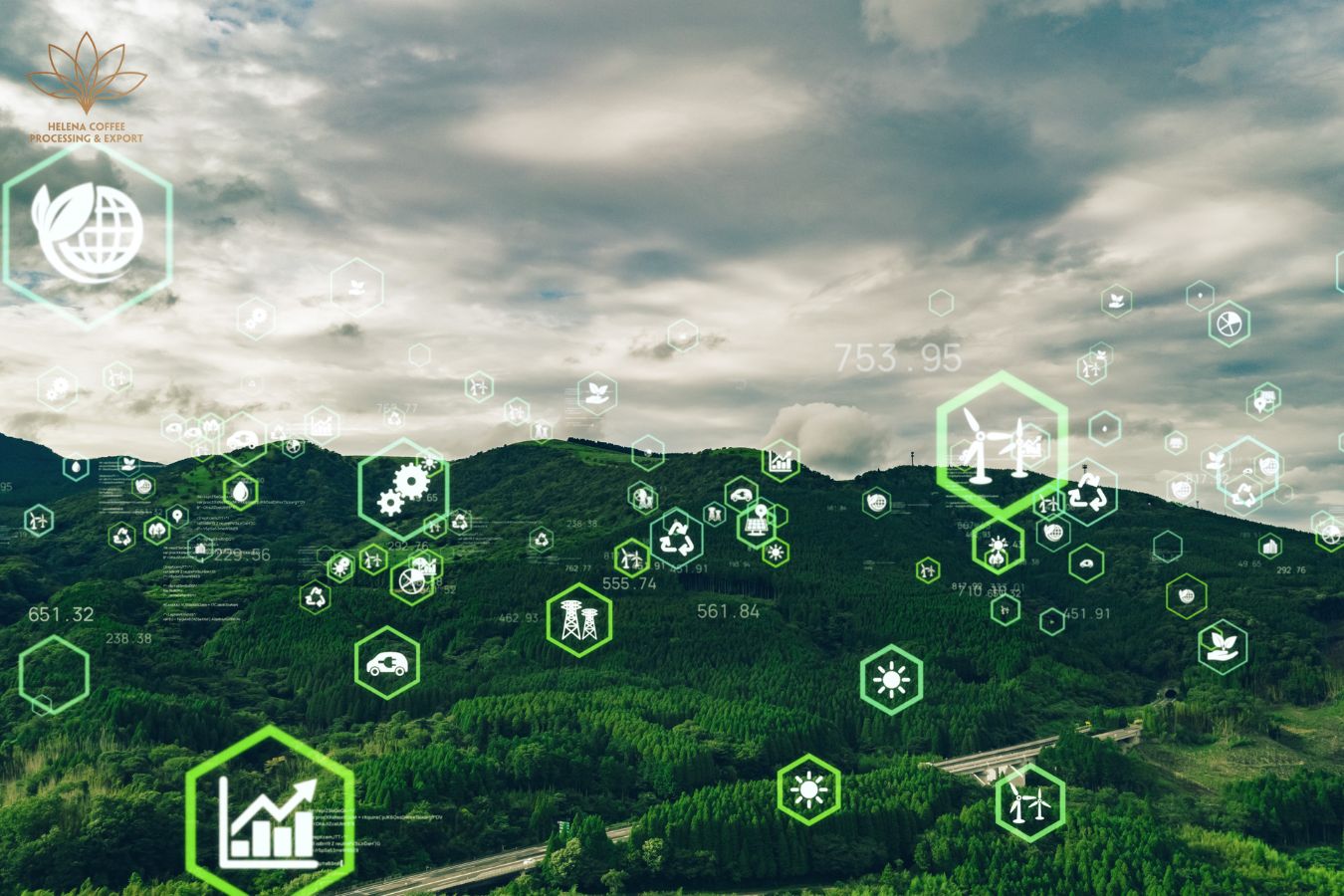
Science and technology play an increasingly significant role in the evolution of human life these days. With fields that are traditional and attached to the history of human existence, such as agriculture, the application and combination of science and technology are extremely necessary—on the one hand, increasing work quality and efficiency, on the other hand, ensuring sustainable development momentum.
The coffee industry has a significant impact on socio-economic life and the environment. Therefore, applying science and technology is essential because global farmers and producers always face many difficulties in controlling prices and crops heavily affected by climate change. At the same time, the application of science and technology also promotes the coffee experience for consumers.
Culture
Technology impacts the source – where coffee is made by helping farmers gather and share detailed information about their crops.
Science and technology are increasingly developing to support right from the beginning. In the UK, engineers from Brunel University, London have invented the product Magic Bean – “Smart Bead”. This seed, after being planted, will collect data on the soil environment such as humidity, temperature, …, sent to the server every hour. The data will be stored in the “cloud” for further analysis. Farmers will quickly check the data through the website/app to know what the soil needs, thereby saving time, fertilizer, and water to reduce waste. The research team is trying to perfect and reduce the cost of production, making the product affordable for universal use.
With technology, farmers in many parts of the world can share their growing experiences, recommend suitable care products, update information and even exchange plant varieties.
By understanding plant varieties’ soil conditions and combining appropriate care and nursery technologies, farmers can almost be more active in the process of controlling and evaluating product quality and predicting production—quantity right before the end of the season.
In addition, technology also supports other breakthroughs such as developing new coffee varieties, improving old coffee varieties, changing farming and harvesting methods to bring better products.
To exchange
With developed technology, typically Blockchain, all information about products and production processes is publicly transparent easily accessible to understand the overall effect.
The world’s first Blockchain in the coffee industry allows access to the cloud, providing information at every step in the coffee supply chain that customers are using. By scanning the QR code associated with the purchased batch of coffee, the customer can see the time and location of every transaction, from the farm to the processing, milling, exporting, roasting and retail. Blockchain allows for improved transparency and traceability of coffee beans across the ocean to the farmer.
The Farmer Connect – building a blockchain-based coffee information platform, providing a solution to track coffee at every transaction, with the ultimate aim of bringing benefits to sellers and serving consumers. Users are interested in finding out the source of the goods they buy. The company also sees the platform as a potential boon for farmers, as storing transaction data puts them in a better position in later negotiations, especially when looking for investors.
Roasting and processing
Understanding the origin, the roasting stage is primarily supported. Using software such as Cropster, after entering the necessary information into the system, data management and processing, analysis of roast charts, and product quality assessment reduce time and effort. For roasters. Customers also quickly receive information about the brand’s production line.
Focusing on data development will build an accurate supply chain from seed to cup. It is also the ideal solution for large organizations with multiple facilities to share information on mass media.
Furthermore, it helps to overcome the cultural disconnect between farmers and roasters. Some farmers may not be familiar with modern technology at first. Still, when they see that more attention to detail can make more money, the application of technology will be beautiful.
Customer experience
As with other service industry areas, the big focus of coffee shops today is on convenience, speed, and personalization. Street coffee shops want to optimize the time and process of making a cup of coffee. It also provides a personalized experience for consumers.
Grupo Crawford Company intends to develop Propina software displayed on iPads so that customers who buy products at the shop can send money directly to the farmer’s pension account. Another mobile app, called Propane Tip Your Farmer, allows consumers to trace the origin of their coffee, send money to the farmers who grow it, receive photos and videos directly from the farm and communicate directly with that household or farm.
Another example is Starbucks’ experiment with Apple’s iBeacon software in customer understanding and brand development. Customers will receive valuable and personalized information through applications or messages; at the same time can provide feedback to help the brand understand the product or service request. This also allows businesses to have the data to craft accurate, personalized messages, bringing brands closer to customers.
Barista tech
Science – technology supports Barista to create works of art with the taste of life and love deep in his heart. Temperature accuracy, amount of water, incubation time, extraction and factors surrounding the scientific problem will produce a better result. With modern machinery sophisticated technology, Barista better understands the nature of each type of coffee, milk to combine and develop.
Thus, Science – Technology is the shortening rope and promoting the development of the coffee industry.